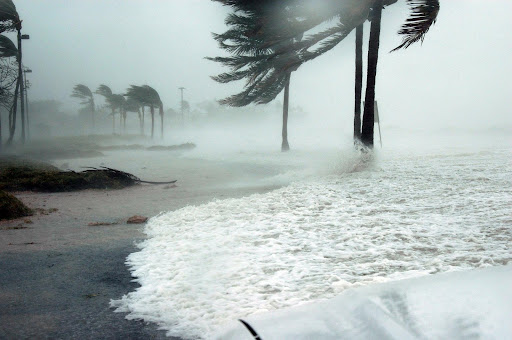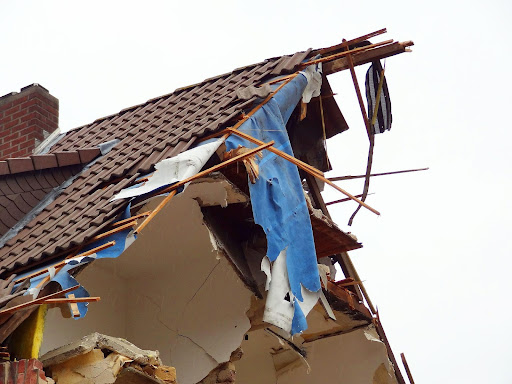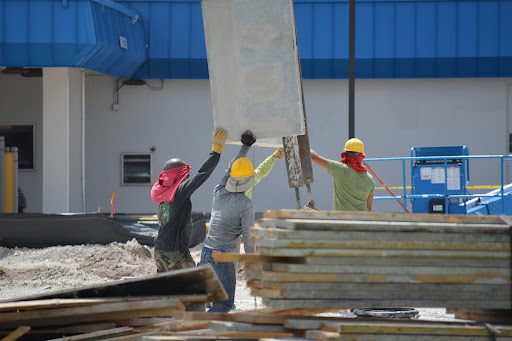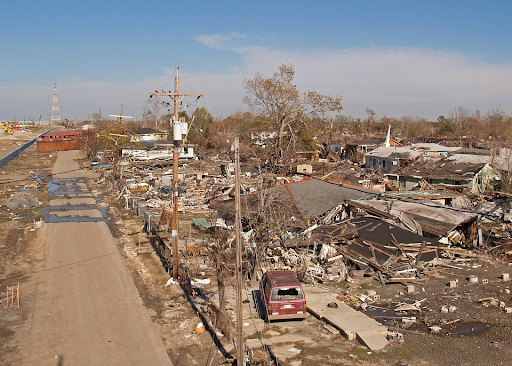
When you live in a hurricane-prone area, you want to build a home that can withstand the heavy rains and high winds. But you also want to find an affordable housing option. Over the years, some prefab homes had a reputation for not being very durable, but that is far from true. A site-built home is manufactured off-site and assembled at your desired location. While you might wonder about the durability of these homes, they are designed to hold up to the harshest conditions, even hurricanes. Here is our complete guide to hurricane-proof site-built homes.
Do you need a durable option for your home in a hurricane-prone region? Contact us today to find more information about our hurricane-proof site-built homes, including those with ICF blocks.
How Hurricanes Can Damage a Home
Before building a home, you need to know how a hurricane can damage a home. For the most part, there can be significant damage as the high winds whip across the structure. But that was more than just ripped siding or broken windows. The pressure from the hurricane is very dangerous. During most hurricanes, the roof is the first component destroyed by these storms. As pressure builds up in the structure, the roofing system will weaken. Couple that with high winds, and the roof will be ripped from home.
Once that happens, the house is now susceptible to rain and water damage. Hurricanes don't have only high winds but also bring heavy rain downpours. Unfortunately, when water gets into the structure, it can damage all of the components of the home, including the electricity. In most cases, the house will need to be demolished.
Related: What is a BUILDER PACKAGE?
To stop the risk of any water damage, the home needs to have reinforced entry points. There are heavy-duty doors and windows on the market that withstand these storms. Hurricane windows will have reinforced vinyl or aluminum frames with impact-resistant glass. Doors designed to withstand hurricanes often have thick aluminum frames with heavy-duty weatherstripping to keep out wind and rain. With hurricane doors and windows, there is less chance that wind can build up pressure to rip off your roof.
Now that you know about the damage caused by a hurricane, what is needed to protect your structure?
Can a House Be Made Hurricane-Proof?

If you live in an area that experiences hurricanes, home building regulations specify what materials must be used for a home. The National Hurricane Center defines a "hurricane-proof" home as a structure that can withstand winds up to 220 miles per hour (350 kph).
All of these homes must be able to withstand a category five hurricane. The floor, roof, wall panels system, and structure must be watertight and airtight. Along with that, the floor will need to be elevated off the ground. The doors and windows must also be manufactured with impact-resistant glass.
Homes made with solid materials can withstand these fierce storms. Think about heavy materials for the structure, such as Insulated Concrete Form (ICF) blocks. These homes are designed to withstand the harshest winds, even those category five wind forces. ICF wall systems are made to protect your structure from hurricanes. Let's look at why ICF homes are an excellent investment, especially in those hurricane-prone areas.
Related: The NEW Affordable Home
Why ICF Is An Affordable Housing Option

Many people stayed away from pre-built homes in hurricane-prone regions in the past. When people think about prefab, they often associate that term with modular or mobile homes for affordable housing. But there are better options, such as ICF homes. These building materials are different from those structures. ICF homes use specialty concrete blocks that take hurricane-resistant construction to the next level. ICF is a plastic foam modular building that makes erecting concrete walls more cost-efficient for the homebuilder.
These walls can be quickly built, and there is space between the steel-reinforced panels often filled with concrete. You need a solid structure in a hurricane, and ICF blocks are the ideal options. The home will have incredible strength with the ICF blocks and reinforced concrete walls. Do ICF homes crack? If the house is properly constructed, it can withstand the harshest winds from a hurricane.
However, there are many other benefits to using ICF, including energy savings and fire resistance.
If you want an energy-efficient option, consider an ICF home. These building materials will give you an extremely airtight home. Along with that, the ICF foam exterior and concrete interiors will provide consistent insulation for your home. You don't have to worry about energy loss through wall joints. Cooled air will not leak from the interior, leading to an average monthly savings of 25 to 50%. Some homeowners might be able to qualify for energy-efficient mortgages (EEMs) to pay for these hurricane-resistance and energy-saving construction elements.
Many people want to use healthier products in their homes, including those construction materials. With an ICF home, you will have better air quality. No toxic fumes are emitted from an ICF wall, and the materials used in the construction do not support the buildup of mildew or mold. You are left with cleaner air quality in your home.
Finally, an ICF home is more durable and safer than other options on the materials. Along with being hurricane-proof, concrete can stand up to fire and heat, providing more safety benefits for the homeowners. Concrete can be exposed to rain, saltwater, and other weather elements and not experience any degradation. Even the steel-reinforced rods are protected within the walls by the concrete's alkalinity, making them resistant to corrosion.
An ICF home will look like a conventional home. However, the window sills are more set back because the concrete walls are thicker. You can apply most finishes to the home's exterior, with many homeowners electing to choose stucco for these homes.
Related: Can a Site-Built Home Really be LESS Expensive than a Mobile home?

Additional Things You Can Do to Hurricane Proof Your Site-Built Home
The most critical factor in hurricane-proofing your site-built home comes during construction. It needs to utilize quality material and be done in a way that’s structurally sound if you want any chance of it surviving.
That being said, there are other things you can do to protect your home from the hurricane. These precautions likely won’t save your home. But they can potentially prevent costly damage from occurring.
Be Careful With Any Site-Built Attachments
Site-built attachments with a site-built home include things like a carport, awning, workstation, porch, pool, and similar things like that. We know you likely love these attachments. But sadly, they do represent a potential hazard when a hurricane comes to town.
Ultimately, the damage they can cause will depend on the wind speeds. Still, you must remember that these site-built attachments come with much lower building standards than your home.
As such, they can be blown away at far lower wind speeds than your house. The extensions flying through the air can be a huge hazard for you and your neighbors.
Cover Your Windows
Covering your windows is essential if you live directly in the path of the hurricane. If you don’t, there’s a significant chance debris will break your windows. The easiest way to protect your windows is to install plywood boards outside of them.
This makes your home unsafe and lets in water that can damage the home further. However, if you don’t want your home to feel spooky from this, you can take a few other methods.
At the very least, put some duct tape in an X-shape over the windows. This will prevent the glass from getting everywhere if it shatters.
Clear the Gutters
Hurricanes bring rain, and your gutters are essential to keeping this water intake away from your home. However, your channels can’t function properly if they’re clogged with leaves and other debris. When this happens, the water sadly has nowhere to go.
As a result, it pools and leaks into your home. This can cause flooding, rotting, and mold. So before the weather gets too severe, make sure you do some outdoor chores around your property to be safe.
Secure Potential Projectiles
Have you had a small construction project going outside? Your kids may have outdoor toys and bikes that they leave around the yard. If the answer’s yes, it’s time to clean all of these things up. Bring what you can inside.
What you can’t bring inside, make sure you secure it to the best of your abilities. It’s important to remember that things will fly with the high winds. And even small toys can become dangerous when thrown in the wind. So secure everything before the hurricane begins.
Have An Evacuation Plan
If you’re in the eye of the hurricane, there’s a good chance your home might not make it, no matter how well it’s built. In this scenario, it’s essential to have an evacuation plan. Don’t leave everything for an emergency, or you will be too panicked to think clearly.
Site-Built Homes Can Be Hurricane-Resistant
Finding a hurricane-resistant home can be a challenge. Many homeowners are choosing to build their houses with ICF blocks. These materials are durable and safer than most conventional options on the market. If you want to make an excellent investment, consider using ICF blocks for your next site-built home.
Are you interested in constructing a hurricane-resistant home? We have plenty of options at Home Nation, including reliable and durable ICF homes. Learn more by checking out the website!





